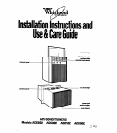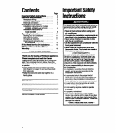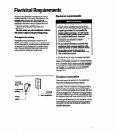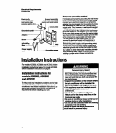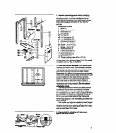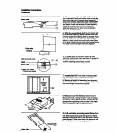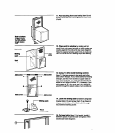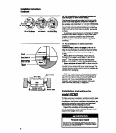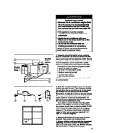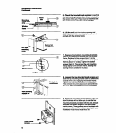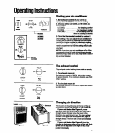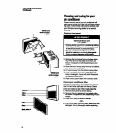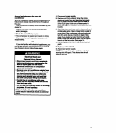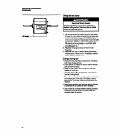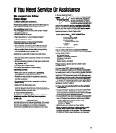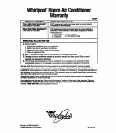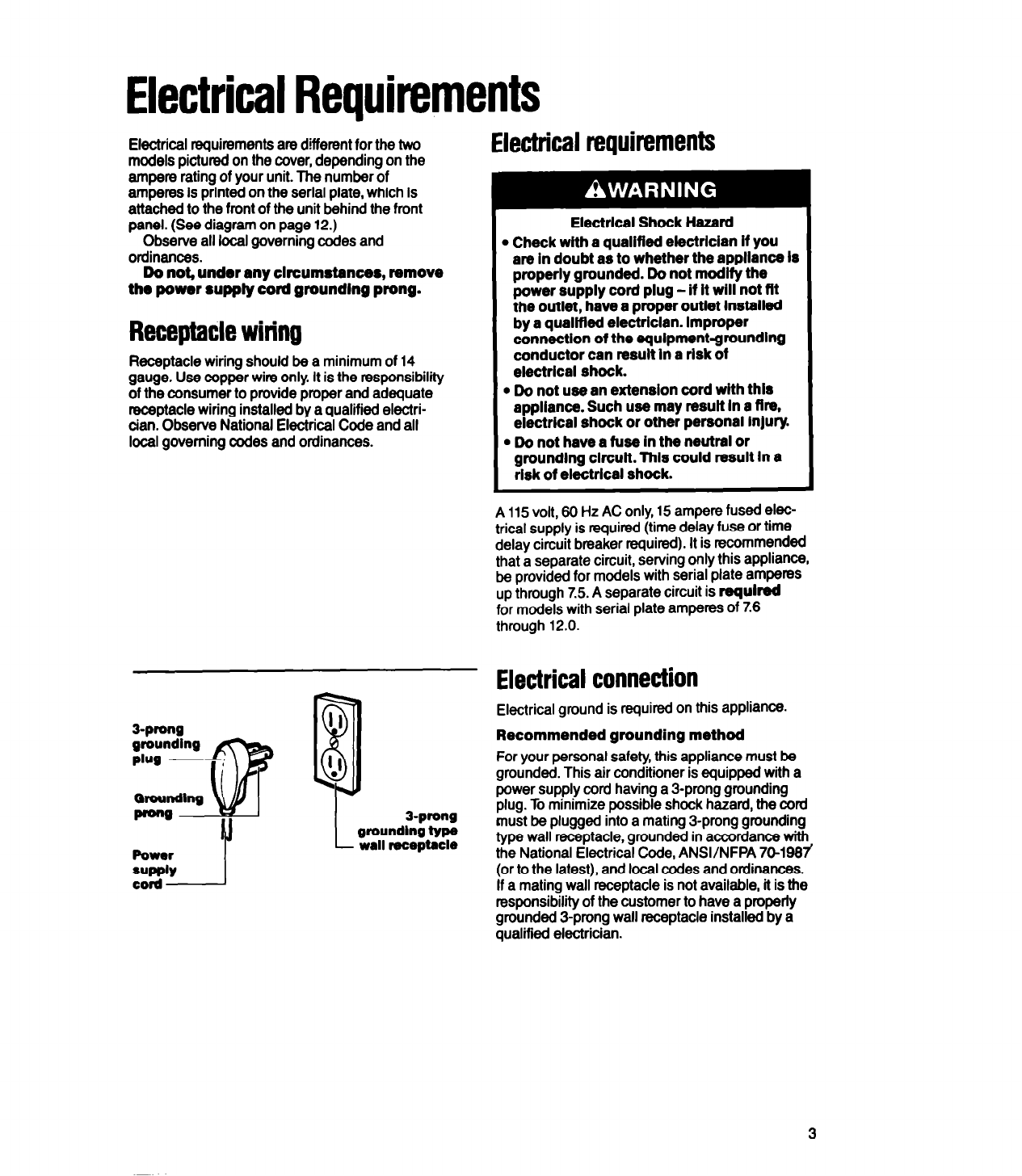
Electrical Requirements
Electrical requirements are different for the two
models pictured on the cover, depending on the
ampere rating of your unit. The number of
amperes is printed on the serial plate, which is
attached to the front of the unit behind the front
panel. (See diagram on page 12.)
Observe all local governing codes and
ordinances.
Do not, under any circumstances, remove
the power supply cord grounding prong.
Receptade wiring
Receptacle wiring should be a minimum of 14
gauge. Use copper wire only. It is the responsibility
of the consumer to provide proper and adequate
receptacle wiring installed by a qualified electri-
cian. Observe National Electrical Code and all
local governing codes and ordinances.
&Prong
Electrical requirements
Electrical Shock Hazard
l Check with a qualified electrician if you
are in doubt as to whether the appliance Is
properly grounded. Do not modify the
power supply cord plug - if it will not fft
the outlet, have a proper outlet installed
by a qualified electrician. improper
connection of the equipment-grounding
conductor can result In a risk of
eiectrlcai shock.
l Do not use an extension cord with this
appliance. Such use may resuit In a fire,
eiectrlcai shock or other personal Iniuw.
l Do not have a fuse in the neutral or
grounding circuit. This could result In a
risk of eiectrlcai shock.
A 115 volt, 60 Hz AC only, 15 ampere fused elec-
trical supply is required (time delay fuse or time
delay circuit breaker required). It is recommended
that a separate circuit, serving only this appliance,
be provided for models with serial plate amperes
up through 7.5. A separate circuit is required
for models with serial plate amperes of 7.6
through 12.0.
Electrical connection
Electrical ground is required on this appliance.
Recommended grounding method
For your personal safety, this appliance must be
grounded. This air conditioner is equipped with a
power supply cord having a 3-prong grounding
plug. To minimize possible shock hazard, the cord
must be plugged into a mating 3-prong grounding
type wall receptacle, grounded in accordance with
the National Electrical Code, ANSVNFPA 70-l&
(or to the latest), and local codes and ordinances.
If a mating wall receptacle is not available, it is the
responsibility of the customer to have a properly
grounded 3-prong wall receptacle installed by a
qualified electrician.
3



